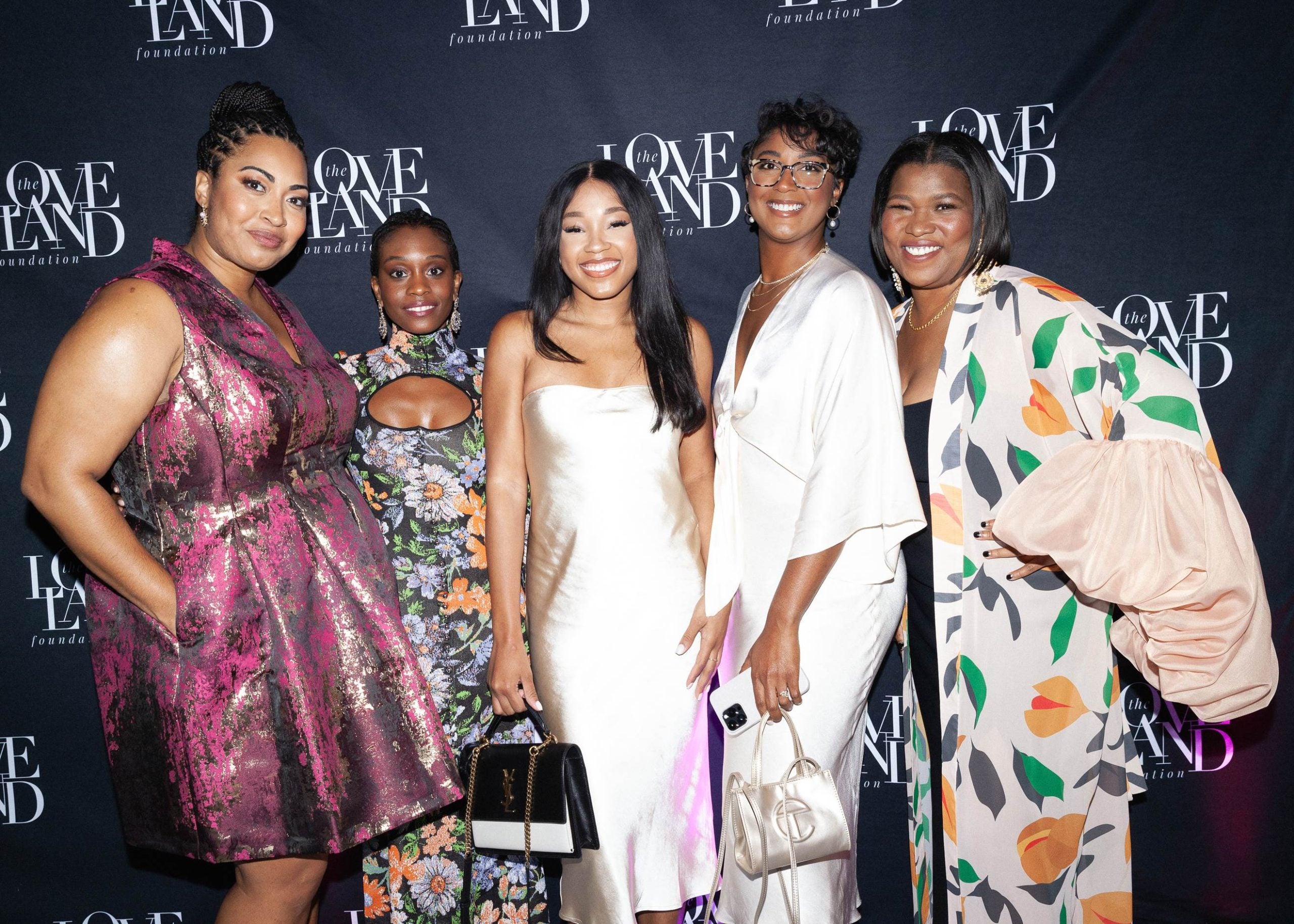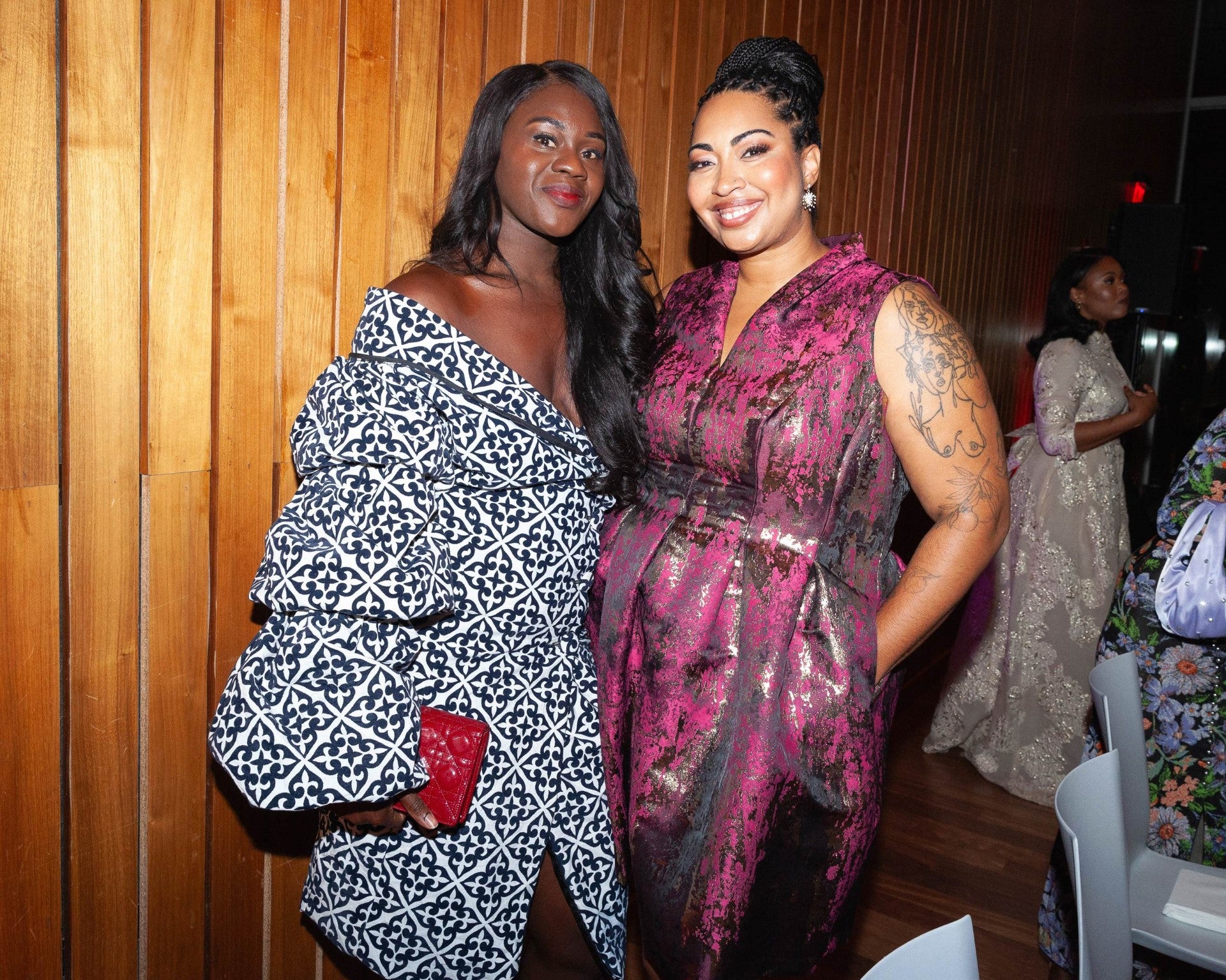The Loveland Foundation Has Given Black Women Over 150,000 Hours Of Free Therapy

[ad_1]

Black women deserve access to therapy and the Loveland Foundation is on a mission to ensure they have that. The foundation, founded by author, entrepreneur, and activist Rachel Cargle in 2018, started out as a birthday wish. While some people make birthday wishes silently over lit candles, Cargle would make hers out loud through an annual birthday wish fundraiser. That eventually morphed into what is now known as the Loveland Foundation. The non-profit aims to bring healing to communities of color through therapy services.
On November 16, The Loveland Foundation hosted their first ever gala at The Standard Highline in New York City. It was an intimate night spent honoring the BIPOC therapists, leaders in the mental health space, board members, employees, and sponsors who make the work they do possible.
The people honored that night included Joy Harden Bradford, Ph.D., author, psychologist, and founder of Therapy For Black Girls, in addition to author Alex Elle, congresswoman Bonnie Waison Coleman, and women’s brand Flamingo.

“This is an organization started by the target market that we serve,” Cargle said during her opening speech. “There’s no white man up in the cloud giving money. There’s no organization who depends on us to do one thing or another to give them clout. We are Black women serving Black women.”
Since 2019, the foundation has had almost 18,500 fund recipients who span across multiple generations. They’ve also had over 2,600 therapists deliver around 150,000 hours of therapy to community members. This is major considering African Americans are 20 percent more likely to experience serious psychological distress than white Americans according to the Substance Abuse and Mental Health Services Administration. Additionally, Black women are about half as likely to look for mental health care. One barrier to them receiving care is the mistrust of medical systems in the U.S. Racism and discrimination are other common barriers.
“Our goal at the organization is to create and to always create the soft landing space for our community to destigmatize mental wellness and create generational change and healing,” said the foundation’s CEO, Sharlene Kemler, during the event.
She continued, “And the fact that we’ve been able to help moms through postpartum depression, that we have gotten some people through their hardest times at work, or the fact that we don’t talk about the fact that as you get older, you become caregivers for your parents and what that relationship entails and being able to provide that support and healing is everything.”
Fund recipients receive vouchers, which cover the cost of 12 therapy sessions. Each voucher is valued at $120. Recipients also get the opportunity to participate in community healing through quarterly support groups and workshops.

The foundation has been able to extend their offerings to therapists so they have access to professional development. Supporting therapists in this way is crucial seeing as the majority of mental health professionals who work with the foundation are BIPOC. Since only a small fraction of mental health professionals in the U.S. are Black, the ones who do the selfless work of healing communities deserve support. Nationally, 4% of psychologists, 2% of psychiatrists, 22% of social workers, and 11% of professional counselors are Black according to the 2022 Black Mental Health report.
Some avenues the foundation provides that development through is ongoing educational workshops and access to other resources.
“I am so excited that we are able to celebrate our amazing community of wellness experts who have gotten us all through some really hard times,” said Kemler. “I think we can all agree the last three years have been real tough for us. And one of the things that the Loveland Foundation has really observed is that the holidays are really hard. And we wanted to take this opportunity to thank you because we couldn’t have the impact we have if it wasn’t for you.”
That said, representation matters and it’s encouraging to see Black women have access to therapists who look like them. The services offered may especially be helpful during the holidays as people navigate grief, loneliness, and mental health challenges. If you would like to donate to the foundation or recommend it to someone who needs therapy, head over to their website and share with your community.
[ad_2]
Source link
